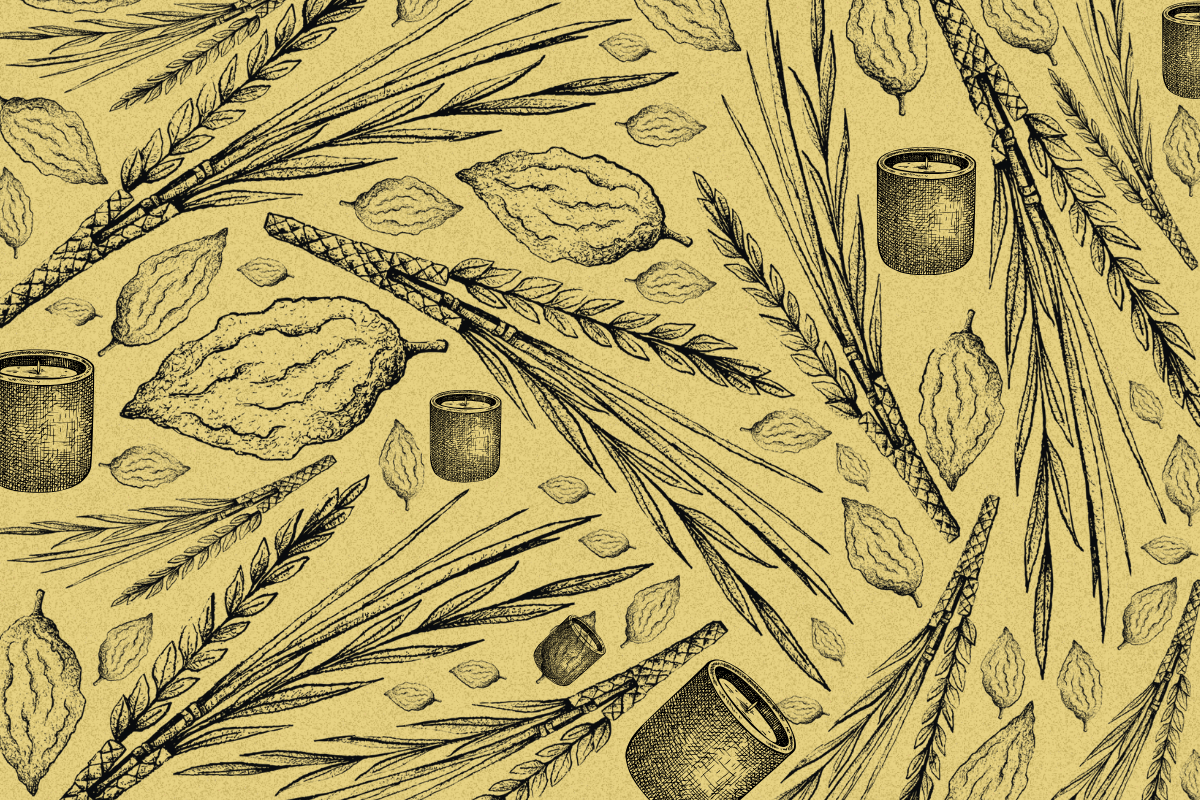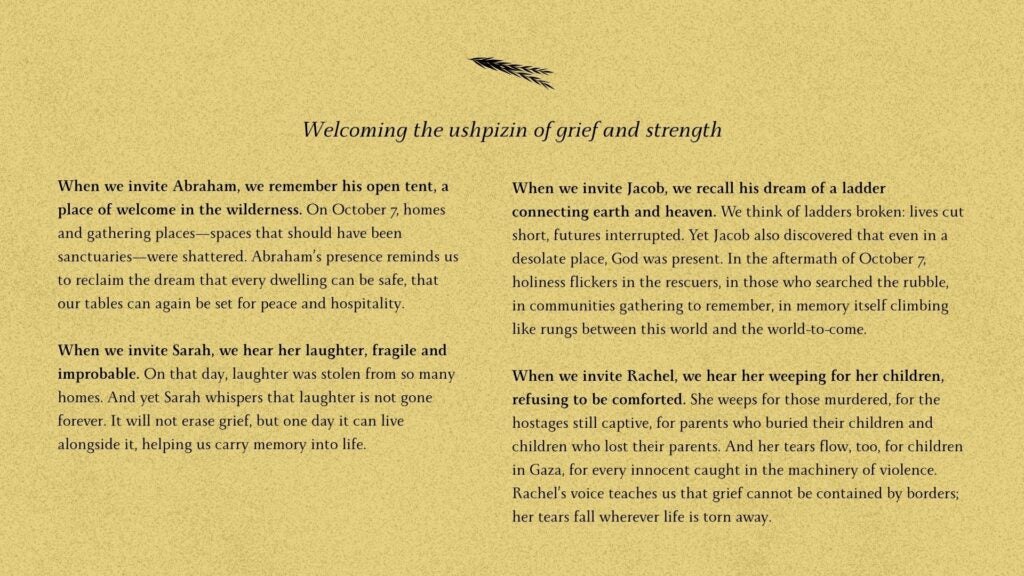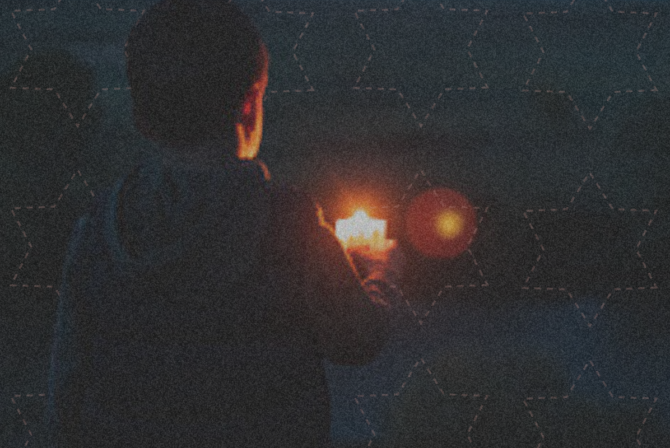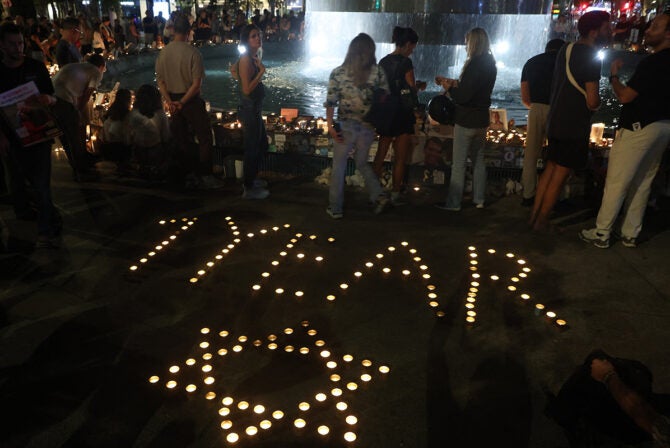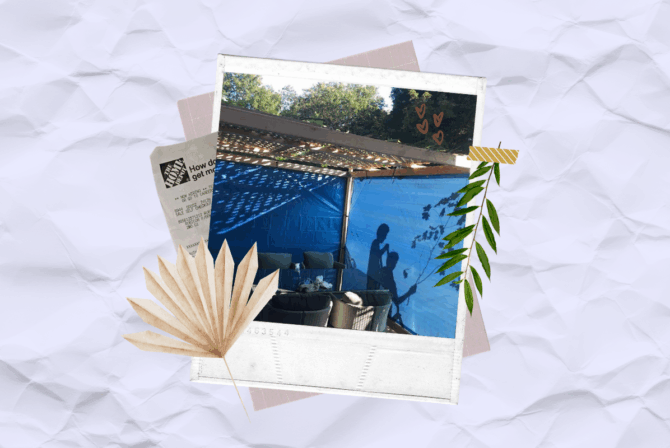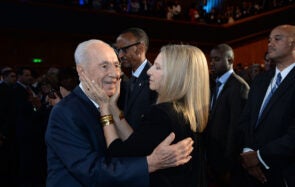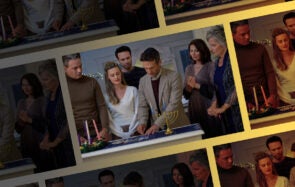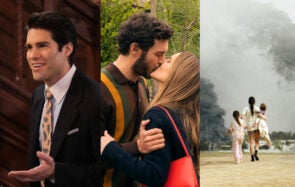On the day before the second anniversary of October 7, we all feel caught in the in between. We’re on the precipice of something; Sukkot, a joyous holiday, begins at sundown, and news of a possible ceasefire and hostage release deal is in the air — not finalized, but possibly, hopefully, still to come (pupupu, kinehora).
In this moment of uncertainty, we virtually gathered as a Kveller community to honor the second anniversary of October 7, to mourn the victims, to pray for the return of the hostages and for a lasting peace.
The inimitable Rabbi Sari Laufer of Stephen Wise Temple led the Kveller event, shepherding us through this moment with such openness and warmth, harnessing the healing and illuminating power of Jewish texts. Throughout the event, she hummed, then at the end recited the words of this niggun: “עׇזִּ֣י וְזִמְרָ֣ת יָ֑הּ וַֽיְהִי־לִ֝֗י לִישׁוּעָֽ” — “The Lord is my strength and might/song, God has become my deliverance.”
More than 100 people joined us, from the West and the East Coast of the United States and everywhere in between, from Canada and even a few guests from Europe — from London, Glasgow and Malta.
We recited from the Hashkiveinu prayer, traditionally said at nighttime, asking God to “spread over us Your shelter of peace.” We talked about the despair and hope and all the things the sukkah can hold. We found gratitude and praise in Psalm 118, sung for Sukkot with our etrog and lulav, and Rabbi Laufer admired the beauty of this psalm, the way it balances the particular and universal.
We sang “El Maleh Rachamim” and recited the Mourner’s Kaddish, but also, we spoke of joy, because as Rabbi Laufer reminded us: “Sukkot commands us to rejoice, even when we are vulnerable.”
Rabbi Laufer asked us to find joy and gratitude. She began the session by asking us all about the things that made us feel protected and safe even in the uncertainty of the past two years.
“Making intentional plans to get together with my Jewish girlfriends,” wrote one person. “Attending online services Friday night and Saturday morning,” wrote another.
The common thread seemed to be, for so many of us, finding grounding in our Jewish community, online and offline. When Rabbi Laufer later asked us what brought us joy this year, family, friendship and community also seemed to be central themes (as was finding solace in our cats).
We read two moving poems: “Only Harvest” by Rabbi Hanna Yerushalmi, evoking both the harvest season of Sukkot and our need for our loved ones to return, and “These Are the Names” by Yael Lifshiz, which helped us remember the names of all those we lost in the two years.
Following the tradition of Ushpizin, which commands us to bring our ancestors into our sukkah, Rabbi Laufer brought our patriarchs and matriarchs into our virtual sukkah, Abraham reminded us of the homes shattered, Jacob of the dreams in the rubble, Sarah reminded us of the laughter we lost on October 7 that can be found again, and Rachel, who wept for her children, reminded us of how we weep for the children of Israel, of Gaza, for those who have lost parents and for the parents who lost their offsprings, for every single innocent life.
Amid nigguns and poems, texts that tie us to our people, to our faith and to our history, we found a way to grieve together, to mourn all that we lost on October 7. We found gratitude in community, and wonderfully — we even found hope.
You can listen to Rabbi Laufer’s moving service below:
